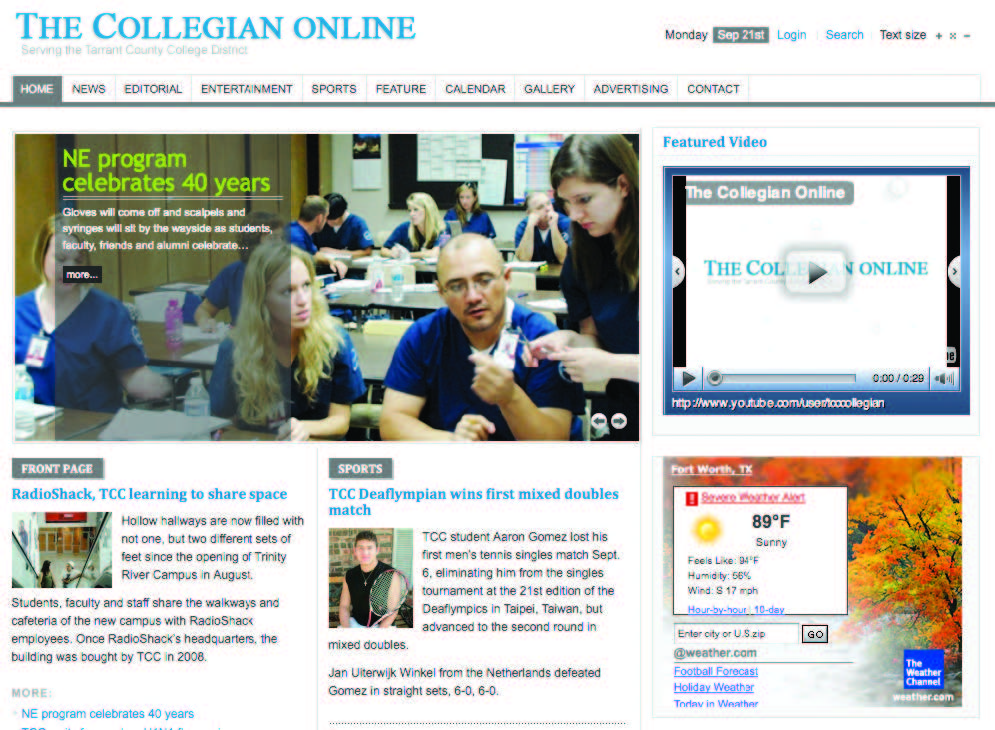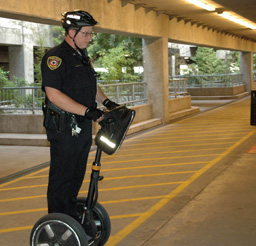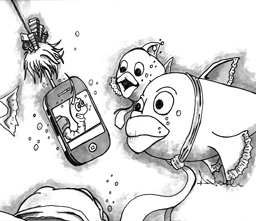By Ashley Bradley/ne news editor
Jason Frawley started his lecture on Taking Good Lecture Notes by telling the students he wished he had a magic way to help them through the process.
“If I had a magic bullet that I could give to you to be able to take good notes, I would,” he told students as they chuckled in their seats.
Frawley, a history associate professor, led the seminar that was part of the Student Success Conference Sept. 16 on NW Campus.
Over the course of the presentation, Frawley told students the way to become the best student is to adopt the slogan of the U.S. Marines, which is “adapt, improvise and overcome,” he said.
All professors really want to do is to help students pass their classes, but it’s hard to cater to every student’s learning style, Frawley said.
During the lecture, Frawley introduced six tips to help students succeed in their classes.
The first tip he gave was to go to class prepared. Students should make sure they understand the syllabus and ask the instructor if they don’t.
“Your professor gives you the battle plan from day one,” he said.
Other ways he said students could stay prepared was to keep up with the reading and review the lecture notes often.
“Rule of thumb is that you should spend about 10 to 15 minutes reading over your lecture notes before and after each class,” he said.
The next was making sure all distractions are eliminated before class starts. Sitting near the front, keeping the work area clean, keeping cell phones off and staying focused were some of the ways he said distractions could be avoided.
Frawley’s third tip was to listen attentively. He said developing listening skills, realizing personal responsibilities and maintaining a positive attitude would make this task easier.
One of Frawley’s slides said most people can recall 50 percent of what they hear, but that anywhere from 20 to 30 percent of what they remember is accurate.
He said that writing everything of validity is important to the class, but the point was to look for important things that would probably be on a test.
“Don’t write down the bark. Look for the treat,” he said as the students who attended the seminar giggled.
Not everything that comes out of an instructor’s mouth is notable, he said, and it’s important to look for the big picture.
One way for students to recognize the big picture is to search for key words and compare notes with other students in the class, he said.
Frawley’s final tip to help students take better notes was to stay organized. Doing small things like using separate folders, different ink colors and highlighters will help students differentiate between their classes and help minimize confusion.
As the seminar came to a close, one student said she felt more confident in her ability to succeed in her class.
“I loved the examples,” said Caroline Nunn, a NW Campus student. “This seminar was really helpful.”
Gertrud Matamba, another student who attended the seminar and moved to the United States nine months ago from Belgium, said she is running into problems because English is not her first language.
“I liked his advice about reading the notes before and after class and to keep an open mind,” she said. “I actually have him as a teacher, and it’s comforting that he is willing to help.”
Frawley wanted students to understand if they have problems in class or don’t understand something, most instructors are willing to help.
“We [instructors] don’t sit up here twisting our mustaches in our ivory towers trying to figure out how to ruin your lives,” he said. “We’re really trying to find ways to help you guys out.”

























